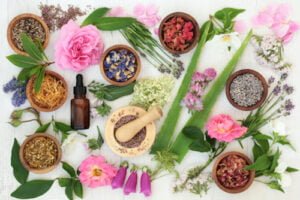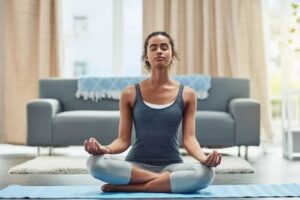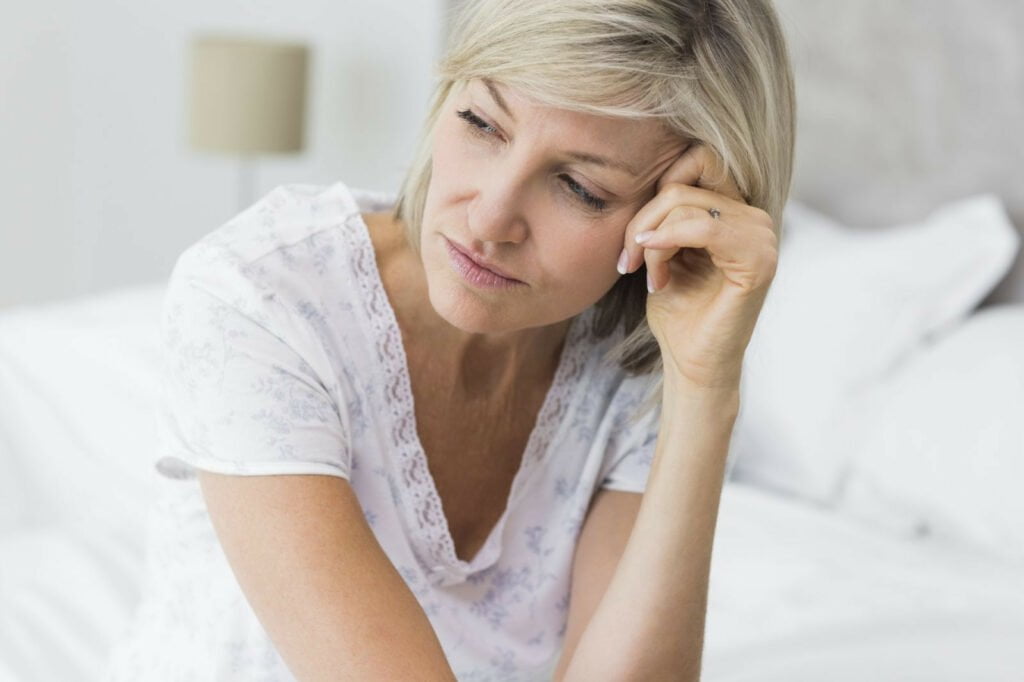Menopause is a natural biological process that marks the end of a woman’s reproductive years. While it is a normal phase of life, the symptoms associated with menopause can be challenging for many women. Hot flashes, night sweats, mood swings, and sleep disturbances are just a few of the symptoms that can impact a woman’s quality of life during this transition. While prescription medications are available to alleviate these symptoms, many women seek non-prescription alternatives for menopause relief. In this blog, we will explore various non-prescription menopause relief options, shedding light on their effectiveness and safety.
Contents
What Does “Non Prescription Relief” Methods Mean?
Non-prescription relief methods” refer to strategies, treatments, or interventions that do not require a prescription from a healthcare professional. These methods are often accessible over the counter (OTC) or through alternative means and can be employed by individuals without direct involvement or supervision from a healthcare provider.
In the context of menopause relief, non-prescription methods include various approaches that women can use to alleviate the symptoms associated with menopause without obtaining a prescription medication. These methods may encompass lifestyle modifications, dietary changes, herbal remedies, supplements, over-the-counter products, and various self-care practices.
List of Non-Prescription Menopause Relief
Examples of non-prescription relief methods for menopause may include:
Lifestyle Modifications

Lifestyle modifications play a crucial role in managing menopausal symptoms and are considered non-prescription relief methods. These changes aim to improve overall well-being, reduce the severity of symptoms, and enhance the quality of life during the menopausal transition. Here are some lifestyle modifications that women can consider for non-prescription menopause relief:
Regular Exercise:
- Aerobic Activities: Engage in regular aerobic exercises such as walking, jogging, swimming, or dancing. These activities can help alleviate symptoms like hot flashes, improve mood, and contribute to better overall health.
- Strength Training: Incorporate strength training exercises to maintain muscle mass and bone density, both of which can be affected during menopause.
Healthy Diet:
- Balanced Nutrition: Adopt a well-balanced diet rich in fruits, vegetables, whole grains, and lean proteins. Adequate nutrition supports overall health and may help manage weight, which can influence hormonal balance.
- Phytoestrogen-Rich Foods: Include foods with natural compounds like phytoestrogens, found in soy products, flaxseeds, and legumes. These may provide relief by acting similarly to estrogen in the body.
Stress Management:
- Yoga and Meditation: Practice yoga and meditation to reduce stress and promote relaxation. Stress management techniques can help mitigate mood swings and improve sleep quality.
- Deep-Breathing Exercises: Incorporate deep-breathing exercises into daily routines to reduce anxiety and promote a sense of calm.
Adequate Sleep:
- Establish a Sleep Routine: Develop good sleep hygiene practices, including maintaining a consistent sleep schedule, creating a comfortable sleep environment, and avoiding stimulants before bedtime.
- Address Sleep Disruptions: If menopausal symptoms disrupt sleep, consider relaxation techniques or adjustments to sleep habits to enhance overall sleep quality.
Limiting Alcohol and Caffeine Intake:
- Alcohol Moderation: Limit alcohol intake, as alcohol can contribute to hot flashes and disrupt sleep.
- Caffeine Reduction: Reduce caffeine consumption, especially in the hours leading up to bedtime, to minimize its impact on sleep patterns.
Quitting Smoking:
- Smoking Cessation: If applicable, quitting smoking can have numerous health benefits, including a reduced risk of cardiovascular issues and improved overall well-being during menopause.
Maintaining a Healthy Weight:
- Regular Physical Activity: Combine regular exercise with a balanced diet to help manage weight. Maintaining a healthy weight can positively impact hormonal balance and reduce the severity of certain menopausal symptoms.
Social Support:
- Join Support Groups: Connect with other women going through menopause by joining support groups or seeking guidance from friends and family. Sharing experiences can provide emotional support and valuable insights.
Dietary Changes
- Consuming a balanced diet with an emphasis on fruits, vegetables, and whole grains
- Including foods rich in phytoestrogens, such as soy and flaxseeds
Herbal Remedies

Herbal remedies have been used for centuries to address various health concerns, including menopausal symptoms. Many women turn to these non-prescription alternatives seeking relief from hot flashes, mood swings, and other issues associated with menopause. It’s important to note that the effectiveness of herbal remedies can vary among individuals, and their safety may not be assured for everyone. Before incorporating herbal remedies into your routine, it’s advisable to consult with a healthcare professional. Here are some herbal remedies commonly considered for non-prescription menopause relief:
Black Cohosh:
- What it is: Black cohosh is derived from the root of the North American plant Cimicifuga racemosa.
- Potential benefits: Some studies suggest that black cohosh may help alleviate hot flashes and night sweats. However, results are mixed, and more research is needed.
- Caution: While generally considered safe for short-term use, long-term safety is not well-established. Consult with a healthcare provider before using black cohosh, especially if you have a history of liver problems.
Red Clover:
- What it is: Red clover contains isoflavones, which are compounds similar to estrogen.
- Potential benefits: Isoflavones in red clover may have a mild estrogen-like effect, potentially helping to reduce hot flashes. However, the evidence is inconclusive.
- Caution: Consult with a healthcare professional, especially if you have a history of hormone-sensitive conditions.
Soy:
- What it is: Soy contains phytoestrogens, which are plant compounds that can mimic the effects of estrogen.
- Potential benefits: Some women report relief from hot flashes and other symptoms with soy-based products. Incorporating soy into the diet may have a modest effect.
- Caution: Discuss soy supplementation with a healthcare provider, especially if you have a history of hormone-sensitive conditions.
Dong Quai:
- What it is: Dong quai is a traditional Chinese herb often used to address women’s health concerns.
- Potential benefits: Some women use dong quai for menopausal symptoms, believing it may help balance hormones and alleviate discomfort.
- Caution: Consult with a healthcare professional, especially if you have a history of blood clotting disorders.
Evening Primrose Oil:
- What it is: Evening primrose oil contains gamma-linolenic acid, an essential fatty acid.
- Potential benefits: Some women use evening primrose oil for symptoms like breast pain and hot flashes, but evidence is limited.
- Caution: Discuss with a healthcare provider, especially if you have a history of epilepsy or bleeding disorders.
Vitamins and Supplements
Vitamins and supplements are commonly used as non-prescription alternatives for menopause relief. While these options may not eliminate menopausal symptoms, some women find that certain vitamins and supplements can help alleviate specific issues associated with this life stage. As with any non-prescription approach, it’s important to consult with a healthcare professional before starting any new regimen to ensure safety and effectiveness, especially if you have underlying health conditions or are taking other medications. Here are some vitamins and supplements that are often considered for menopause relief:
Vitamin E:
- Potential benefits: Vitamin E is believed to have antioxidant properties and may help reduce the frequency and intensity of hot flashes. It is thought to stabilize cell membranes and regulate the release of prostaglandins, substances that play a role in hot flashes.
- Caution: High doses of vitamin E can have adverse effects, including an increased risk of bleeding. Consult with a healthcare provider for guidance on the appropriate dosage.
Calcium and Vitamin D:
- Potential benefits: Calcium and vitamin D are essential for bone health. As estrogen levels decline during menopause, bone density may decrease, increasing the risk of osteoporosis. Calcium and vitamin D supplementation can help maintain bone strength.
- Caution: Excessive intake of calcium supplements may lead to kidney stones. Consult with a healthcare provider to determine the appropriate dosage based on individual needs.
Mind-Body Techniques

These techniques emphasize the role of mental and emotional factors in influencing physical health. Incorporating mind-body practices into daily routines can be beneficial for managing stress, improving mood, and reducing the impact of menopausal symptoms. Here are some mind-body techniques commonly considered for non-prescription menopause relief:
Yoga
- Benefits: Yoga combines physical postures, controlled breathing, and meditation. It can help improve flexibility, reduce stress, and promote relaxation. Some women find relief from menopausal symptoms, including hot flashes and mood swings, through regular yoga practice.
- Types: Various types of yoga, such as Hatha, Vinyasa, and Restorative, offer different approaches to movement, breathing, and meditation. Choose a style that suits your preferences and physical condition.
Meditation
- Benefits: Meditation involves focusing the mind and promoting a state of deep relaxation. Regular meditation practice can help reduce stress, and anxiety, and improve overall mental well-being. It may also contribute to better sleep quality.
- Types: Mindfulness meditation, guided meditation, and transcendental meditation are among the many meditation techniques available. Furthermore, experiment with different methods to find what works best for you.
Deep-Breathing Exercises
- Benefits: Deep-breathing exercises, such as diaphragmatic breathing or abdominal breathing, can activate the body’s relaxation response. Practicing deep breathing regularly may help manage stress, reduce tension, and improve emotional balance.
- Techniques: Inhale deeply through the nose, allowing the abdomen to expand, and exhale slowly through pursed lips. Focus on the breath and repeat several cycles.
Over-the-Counter (OTC) Products
Over-the-counter (OTC) products are readily available without the need for a prescription and can provide non-prescription relief for various menopausal symptoms. These products are often accessible in pharmacies, grocery stores, or online, allowing women to explore different options for managing specific issues related to menopause. Before using any OTC product, it’s essential to read the labels carefully, follow recommended dosages, and consider consulting with a healthcare professional to ensure safety and effectiveness. Here are some OTC products commonly used for menopause relief:
Cooling Products:
- Types: Cooling products, such as cooling pads, fans, and clothing, are designed to help manage hot flashes by lowering body temperature.
- How They Work: These products provide a cooling sensation, helping to alleviate the discomfort associated with sudden temperature fluctuations during hot flashes.
Vaginal Lubricants and Moisturizers:
- Types: Over-the-counter vaginal lubricants and moisturizers are designed to address vaginal dryness and discomfort associated with hormonal changes during menopause.
- How They Work: These products provide lubrication and moisture to the vaginal area, enhancing comfort and reducing friction.
These non-prescription relief methods provide women with a range of options to manage menopausal symptoms, and many individuals find them accessible and effective. However, it’s essential to note that while these methods may offer relief for some, they may not be suitable or effective for everyone. Individuals must consult with their healthcare providers before initiating any new regimen, especially if they have underlying health conditions or are taking other medications.


